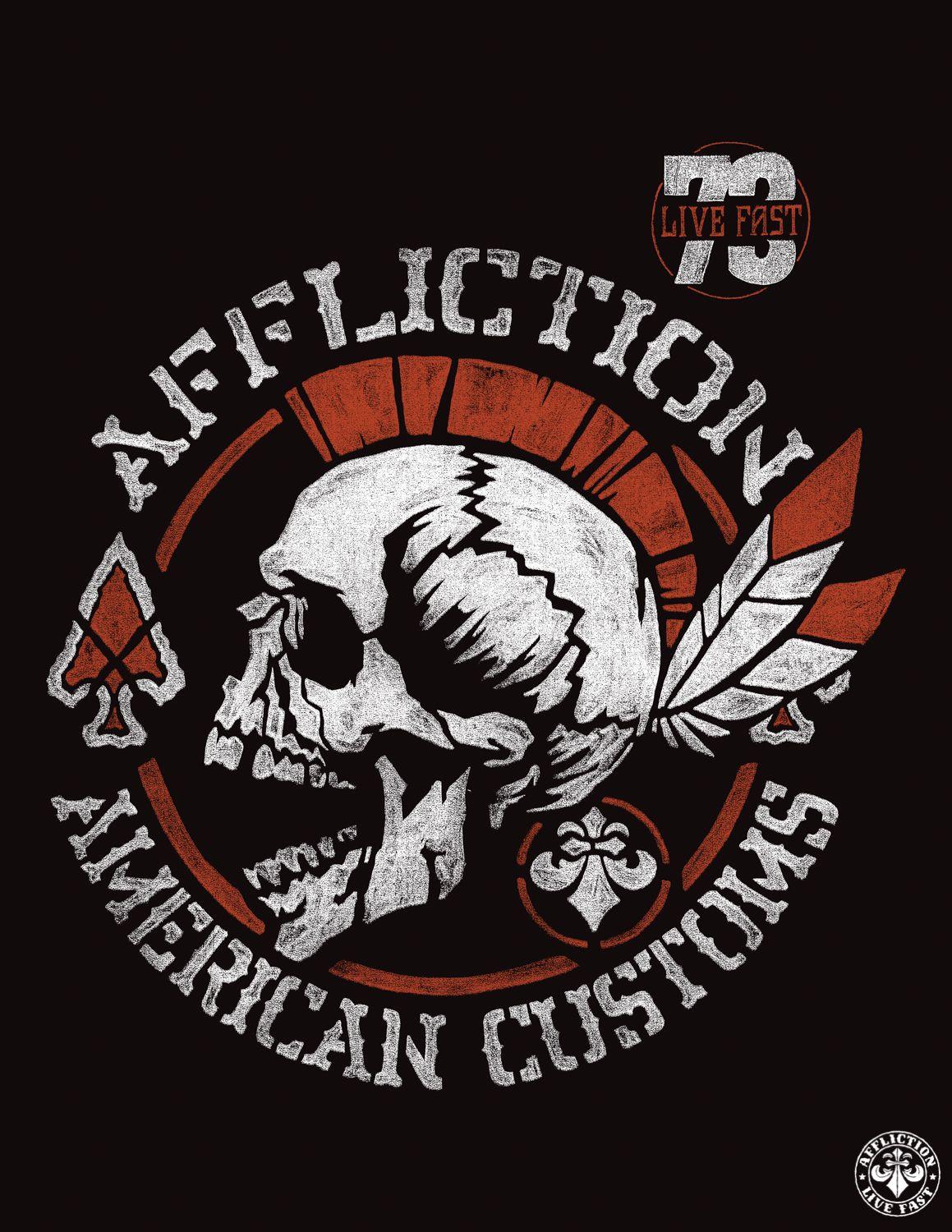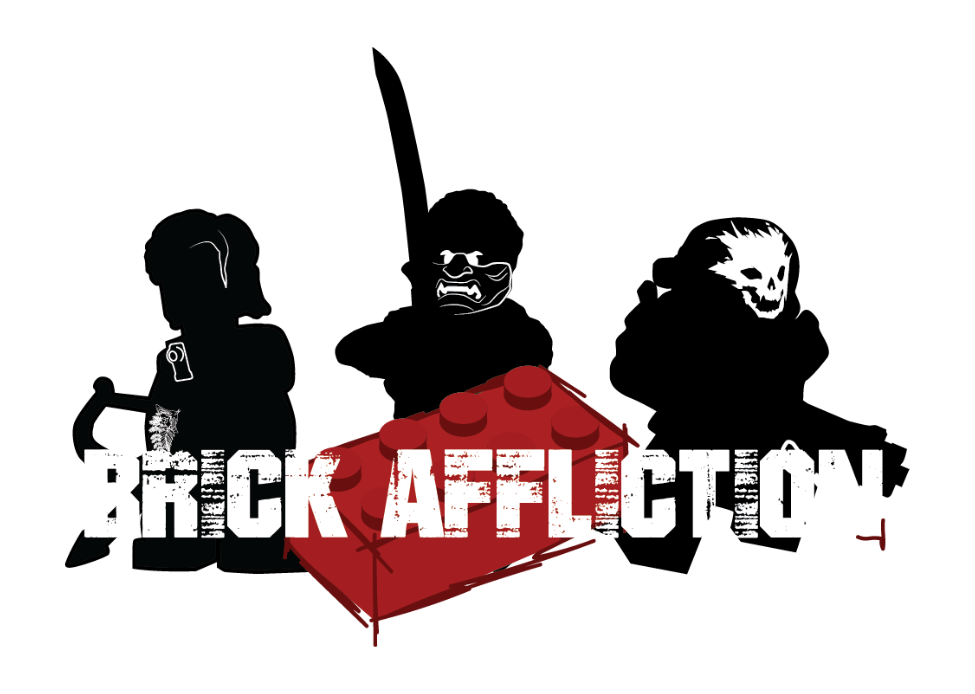Affliction: A Deep Dive Into Its Meaning, Impact, And Real-Life Stories
When we talk about affliction, it’s not just a word; it’s an experience that shapes lives, tests resilience, and often defines who we are. Imagine this: life throws challenges at you, some small, others overwhelming. But how do you face them? Affliction, in its simplest form, is a struggle or hardship that tests the human spirit. Whether it’s personal pain, societal issues, or global crises, understanding affliction helps us navigate these tough times better. Let’s get into it, shall we?
Now, before we dive deep, let’s set the stage. Affliction isn’t just about feeling bad or going through tough times. It’s about how we respond to those moments, how we grow from them, and how we can turn our struggles into something meaningful. This isn’t just a story of suffering—it’s a story of hope, strength, and transformation.
So, buckle up, because we’re about to explore what affliction really means, its impact on our lives, and how we can rise above it. This ain’t just a casual chat; it’s a journey through real-life stories, expert insights, and actionable advice. Let’s make this count!
Read also:Anderson The Man Who Redefined Modern Journalism
What Exactly Is Affliction?
Let’s break it down. Affliction refers to any form of suffering, pain, or distress that affects an individual or a group. It can be physical, emotional, or even spiritual. Think about it—when someone loses a loved one, battles a chronic illness, or faces financial ruin, they’re going through affliction. But here’s the kicker: affliction isn’t always bad. Sometimes, it’s the thing that pushes us to grow, learn, and become better versions of ourselves.
According to researchers at Stanford, affliction is more than just a negative experience. It’s a catalyst for change. In fact, studies show that people who face significant challenges often develop stronger resilience and empathy. So, while it might feel like the world is against you, there’s a silver lining if you look hard enough.
Types of Affliction: A Closer Look
Physical Affliction
This is the most obvious form of suffering. Physical affliction includes injuries, illnesses, and disabilities. Imagine living with chronic pain or battling cancer. It’s tough, no doubt, but many people find strength in these experiences. Take, for example, Nick Vujicic, who was born without arms and legs. He turned his affliction into a global message of hope and inspiration.
Emotional Affliction
Emotional affliction is just as real as physical pain, sometimes even more so. It includes things like grief, depression, anxiety, and heartbreak. Did you know that 1 in 4 people will experience a mental health issue at some point in their lives? That’s a lot of people dealing with emotional affliction. But here’s the thing: talking about it helps. Therapy, support groups, and even just having a good cry with a friend can make all the difference.
Spiritual Affliction
Spiritual affliction is a bit more abstract. It’s about feeling disconnected from your purpose, values, or faith. Many people experience this during major life transitions or when they’re questioning their beliefs. But spiritual growth often comes from these moments of doubt. Think about it—when you’re forced to rethink your priorities, you might discover a new sense of meaning and direction.
Impact of Affliction on Daily Life
Affliction doesn’t just happen in a vacuum; it affects every aspect of our lives. From relationships to work to personal well-being, the ripple effect is real. For instance, if someone is dealing with chronic pain, it can affect their ability to work, socialize, and even sleep. Similarly, emotional affliction like anxiety can make everyday tasks feel overwhelming.
Read also:Alex Jones The Controversial Figure Shaping Modern Media Landscape
But here’s the thing: while affliction can be debilitating, it can also be a wake-up call. Many people find that facing their struggles head-on leads to positive changes in their lives. They might start eating healthier, exercising more, or prioritizing self-care. It’s like hitting rock bottom and then deciding to rebuild from the ground up.
How to Cope with Affliction
Seek Support
You don’t have to face affliction alone. Talking to friends, family, or professionals can make a huge difference. Support groups, therapy, and counseling are all great options. And don’t forget about online communities—there are tons of people out there who understand what you’re going through.
Practice Mindfulness
Mindfulness is all about being present in the moment without judgment. It can help you manage stress, anxiety, and even physical pain. Meditation, deep breathing, and yoga are all great ways to practice mindfulness. Plus, they’re free and can be done anywhere!
Focus on What You Can Control
Let’s face it—some things in life are out of our control. But focusing on what you can control can give you a sense of empowerment. Whether it’s improving your diet, exercising regularly, or setting boundaries in relationships, taking small steps can lead to big changes.
Real-Life Stories of Overcoming Affliction
Let’s talk about some real people who’ve faced affliction and come out stronger on the other side. Take Malala Yousafzai, for example. She survived a gunshot wound to the head and went on to become the youngest-ever Nobel laureate. Or consider J.K. Rowling, who wrote the first Harry Potter book while living in poverty as a single mom. These stories show us that affliction doesn’t have to define us—it can inspire us to achieve great things.
Meet Sarah: A Survivor of Domestic Abuse
Sarah’s story is one of courage and resilience. After years of enduring domestic abuse, she finally found the strength to leave her toxic relationship. With the help of a local shelter and counseling, she rebuilt her life and now advocates for survivors of abuse. Her journey proves that healing is possible, no matter how dark things seem.
The Role of Community in Overcoming Affliction
Community plays a huge role in helping people overcome affliction. Whether it’s through support groups, volunteer work, or simply being there for someone in need, community can make all the difference. Studies show that people who feel connected to others are more likely to recover from trauma and hardship. So, if you’re going through something tough, don’t hesitate to reach out for help.
Expert Insights on Affliction
Experts in psychology, medicine, and spirituality all agree: affliction is a natural part of life. Dr. Brené Brown, a renowned researcher on vulnerability and resilience, says that embracing our struggles can lead to greater self-awareness and connection. Similarly, Dr. Viktor Frankl, a Holocaust survivor and psychiatrist, believed that finding meaning in suffering is key to overcoming it.
These insights remind us that affliction isn’t something to be feared or avoided. Instead, it’s an opportunity for growth and transformation. By facing our challenges with courage and resilience, we can emerge stronger and wiser.
Preventing and Managing Affliction
Build Resilience
Resilience is the ability to bounce back from adversity. It’s not something you’re born with—it’s something you develop over time. Building resilience involves things like practicing gratitude, setting realistic goals, and maintaining a positive outlook. It’s like building a muscle—the more you use it, the stronger it gets.
Develop a Support Network
Having a strong support network is crucial when it comes to managing affliction. Whether it’s family, friends, or professional help, having people you can rely on makes a huge difference. Don’t be afraid to ask for help when you need it. Remember, it’s a sign of strength, not weakness.
Take Care of Your Mental Health
Mental health is just as important as physical health. Prioritizing self-care, seeking therapy when needed, and practicing stress-reducing activities like meditation can help you manage affliction more effectively. It’s about being proactive, not reactive, when it comes to your well-being.
Conclusion: Embrace the Journey
Affliction is a part of life, but it doesn’t have to define us. By understanding what it is, how it affects us, and how we can overcome it, we can turn our struggles into opportunities for growth. Remember, you’re not alone in this journey. There are people, resources, and communities out there ready to support you.
So, what’s next? Take action. Whether it’s reaching out for help, practicing mindfulness, or building resilience, every small step counts. And don’t forget to share this article with someone who might need it. Together, we can create a world where affliction becomes a stepping stone, not a roadblock.
Table of Contents
- What Exactly Is Affliction?
- Types of Affliction: A Closer Look
- Impact of Affliction on Daily Life
- How to Cope with Affliction
- Real-Life Stories of Overcoming Affliction
- The Role of Community in Overcoming Affliction
- Expert Insights on Affliction
- Preventing and Managing Affliction
- Conclusion: Embrace the Journey


